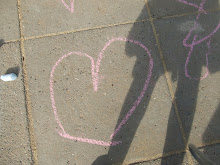The second section of Allen Ginsberg’s poem “Howl” focuses on “Moloch”--Ginsberg's euphemism for the military prison state of the United States in the 1950's. Ginsberg sees America as having given itself over to the worship of oil and money. He states that Moloch's “love is endless oil and stone!” (22). And he goes on to state that Moloch's “soul is electricity and banks!” (22). For Ginsberg, Moloch represents a death-like war-god who controls America. In the second section of “Howl,” Moloch turns into a dynamo—a machine whose force drives society. The second section of “Howl” continues the poem's ascent from the inferno up to purgatory and eventually to the holy paradiso. Ginsberg viewed San Francisco as capitulated to military-industrial complex. His vision is an eclectic hybrid religion. Moloch, the “incomprehensible prison” and the “soulless jailhouse” (21) that Ginsberg sees as taking over America.
Ginsberg employs the “cannibal dynamo” of Moloch in order to prompt the reader into a spiritual dynamo: one which will help negate the destructive physical and psychological effects of Moloch on society (21). Moloch is “pure machinery” and yet it personified as something much more human, complete with a “mind...blood (and)...eyes” (21, 22). The speaker attributes these life-like qualities to Moloch in order to help the reader gain a clearer picture of the evil force running America.
The relentless force with which Moloch constantly bombards American society is compounded Ginsberg's endless use of exclamations. The reader is repeatedly bombarded with “Moloch! Moloch!” to the extent that it is not only impossible to ignore but actually quite annoying (22). The only punctuation used at the end of a line through out the entire section of the poem is the explanation point. This repetitive form expresses the urgency in the speakers voice. He is not passively commenting on the destructive force of Moloch within society; rather, he is proclaiming loudly and clearly to anyone who willing to stop and listen to just how destructive of a force Moloch has become.
For the majority of the poem, every stanza begins with “Moloch!” until the focus shifts to the America people who “broke their backs lifting Moloch to Heaven!” (22). Only after sufficiently painting a picture of Moloch and it's totality of control does Ginsberg shift towards the people responsible for “lifting the city to Heaven which exists and is everywhere about us” (22). Ginsberg offers the ubiquity of Heaven as a peaceful refrain from the overpowering Moloch, which his dominated this section of the poem up until this point.
The final stanza of the poem offers the reader with an option for getting away from Moloch. The people in the poem free themselves from the oppressive power of Moloch by “jump[ing] off the roof” (23). Unfortunately, this kind of freedom will cost you your life. This rather drastic solution points not only to the necessity Ginsberg sees in freeing oneself from the death-grip control of a Moloch government but also to the urgency with which one must act. One can either sit around and wait to be eaten alive by Moloch, or he can go “down to the river” (23) and take his own life. Ironically this political act of protest won't stop the insatiable Moloch.
